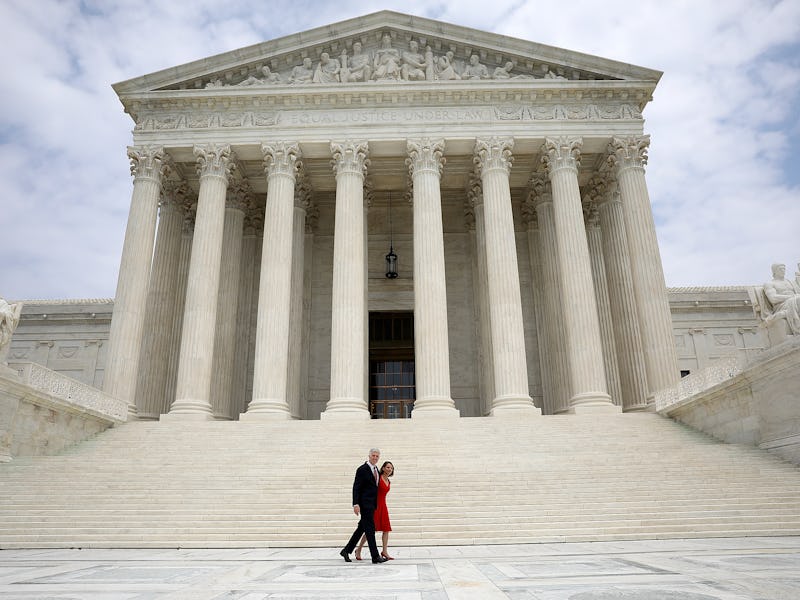Supreme Court Case Determines Whether Police Need a Warrant for Cell Phone Data
The case will raise issues of individual privacy and the Fourth Amendment.

The Supreme Court is expected to decide whether an investigator can legally obtain cell phone data revealing private citizens’ locations without first getting a warrant sometime before next summer.
Supreme Court justices will have to decide what level of privacy Americans are allowed in an increasingly technology-fueled digital age. The case, Carpenter v. United States, will also set precedent for law enforcement, who will be told whether they need to get a warrant before accessing a person’s digital records and history.
This case focuses on the Fourth Amendment, which defends citizens from the government conducting “unreasonable searches and seizures” without a warrant. The amendment often pits authorities and civilians against each other, with officials contending they disregard warrants to act in the interest of “public safety” and opponents arguing that current policies regarding stop-and-frisk, surveillance and search warrants are in violation of individual privacy.
In Carpenter v. United States, the plaintiff argues his Fourth Amendment rights were violated when police obtained his cell phone’s location data without a warrant as part of an investigation into an armed robbery, a crime for which he was ultimately convicted.
The 2017 Supreme Court, with Justice Neil Gorsuch as its newest member.
Under current law (the Stored Communications Act), police only need “reasonable grounds to believe” that records they’re requesting from a phone company are “relevant and material to an ongoing criminal investigation.”
However, the Fourth Amendment was written more than two centuries before today’s emerging technology. The issue revolves around a Constitutional amendment that “needs to be updated and clarified for the 21st century,” the SCOTUS blog writes.
“[The] announcement that the Supreme Court will review Carpenter’s case may signal that the justices – all of whom presumably carry cellphones themselves – might view the issue differently,” the SCOTUS blog writes.
Former Chief Justice John Roberts said in 2014 that phones were “such a pervasive and insistent part of daily life that the proverbial visitor from Mars might conclude they were an important feature of human anatomy.”
The decision in this case may have implications on other forms of surveillance that rely on new technologies as well.
The American Civil Liberties Union argues that “these kinds of sensitive digital records” need to be protected with “undiminished force” by the Fourth Amendment.
Will law enforcement need a warrant to check the data?
“The data acquired by police provides a stark demonstration of how location data can reveal extraordinarily private details about people’s lives, from where they sleep to where they pray,” the ACLU said in June statement.
Authorities request phone companies hand over cell records hundreds of thousands of times a year. In a report from AT&T, the company says authorities submitted demands for records more than 250,000 separate times in 2016 alone.
An interactive from the ACLU shows how varied cell phone tracking laws are by state.
The highest federal court started a new term Monday in full strength, as Trump-appointed Justice Neil Gorsuch joins the other eight justices in place of the late Justice Antonin Scalia.
Other controversial issues appearing on the Supreme Court’s docket include religious liberty, immigration and voting rights.